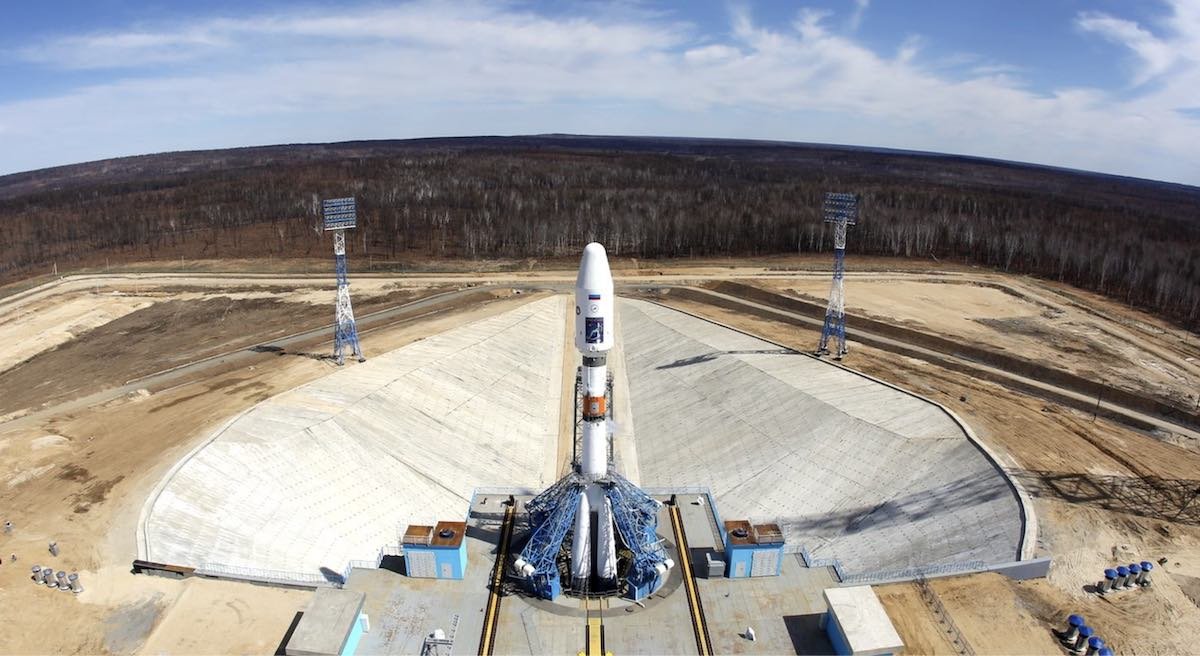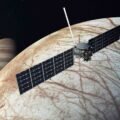A Russian spacecraft crash that occurred over the weekend saw the country’s Luna 25 craft collide with the moon, bringing a mission aimed at ending the country’s 47-year hiatus in lunar exploration to a smashing conclusion.
According to Russian space agency Roscosmos, the Luna-25 craft reportedly crashed on Saturday while performing an emergency maneuver that followed an “abnormal situation.”
“According to preliminary analysis, in light of deviation of the actual parameters from of the impulse from the estimated ones, the Luna 25 spacecraft entered an unplanned orbit and ceased to exist after colliding with the surface of the Moon,” the Russian space agency said in a statement provided to Russian news agency Interfax.
“The specially formed interagency commission will determine the causes of the loss of the spacecraft,” the statement added.
According to Roscosmos, contact with the spacecraft was lost on Saturday, August 19, following “the issuing of an impulse for forming the pre-landing elliptical orbit of the Luna 25 spacecraft was envisaged in accordance with its flight program. “
All contact with Luna-25 was lost at 2:57. p.m. Moscow time on Saturday.
“Measures to find the spacecraft and make contact with it taken on August 19 and 20 yielded no results,” the Roscosmos statement read.
Launched on August 10, 2023, from Vostochny Cosmodrome, Luna 25 launched into Earth orbit on a Soyuz-2 Fregat, after which it fired its upper stage, propelling it into lunar transfer orbit.
The spacecraft fired its engines again on August 16, entering a planned lunar orbit that was expected to last as much as 7 days before touching down on the lunar surface.
The failed Luna-25 mission aimed to study the lunar exosphere, in addition to studying the soil near the moon’s south pole over the course of the next twelve months.
The southern extremities of the moon remain an area of intrigue for scientists due to the potential that frozen water may be found there.
The Luna 25 mission was originally planned as a collaboration between Russia and the European Space Agency. However, that partnership ended, along with “all cooperative activities with Russia,” in April of last year following the country’s invasion of Ukraine.
“Russian aggression against Ukraine and the resulting sanctions put in place represent a fundamental change of circumstances and make it impossible for ESA to implement the planned lunar cooperation,” read a statement issued by the ESA last year.
Following the end of their cooperative space efforts, the ESA announced that its efforts originally planned for inclusion with future Russian missions that included Luna-27 would be “secured on board a NASA-led Commercial Lunar Payload Services (CLPS) mission for the PROSPECT lunar drill and volatile analysis package.”
It was also reported that Russian scientist Mikhail Marov, who reportedly called the failed moon mission his “life’s work,” was overcome with a sudden, “sharp deterioration” in his health after crash on Saturday.
Marov, who had previously called Luna-25 the “last hope to see the revival of [the Russian] lunar programme” told reporters he was “sad that we didn’t manage to land the device,” adding that its failure had been partly responsible for his hospitalization.
Prior to being hospitalized, Marov had been adamant that there be no cover-ups as to what caused the crash over the weekend.
“I think the answer will be found in the foreseeable future,” Marov said.
The failure of its lunar mission over the weekend marks the latest event in a series of claims involving accidents the Russian space agency has seen in recent years. In 2019, Dmitry Rogozin, then head of Roscosmos, said during a press briefing that such claims were merely a “stereotype.”
“I want to point out that it is a stereotype that our spacecraft keep crashing. We have long fixed that,” he said during the 2019 briefing. Rogozin served as director general of Roscosmos until July of last year.
It remains unclear what specifically caused the crash on Saturday, although reports indicate an “emergency situation” unfolded during the spacecraft’s pre-landing orbit.
Micah Hanks is the Editor-in-Chief and Co-Founder of The Debrief. He can be reached by email at micah@thedebrief.org. Follow his work at micahhanks.com and on Twitter: @MicahHanks.

